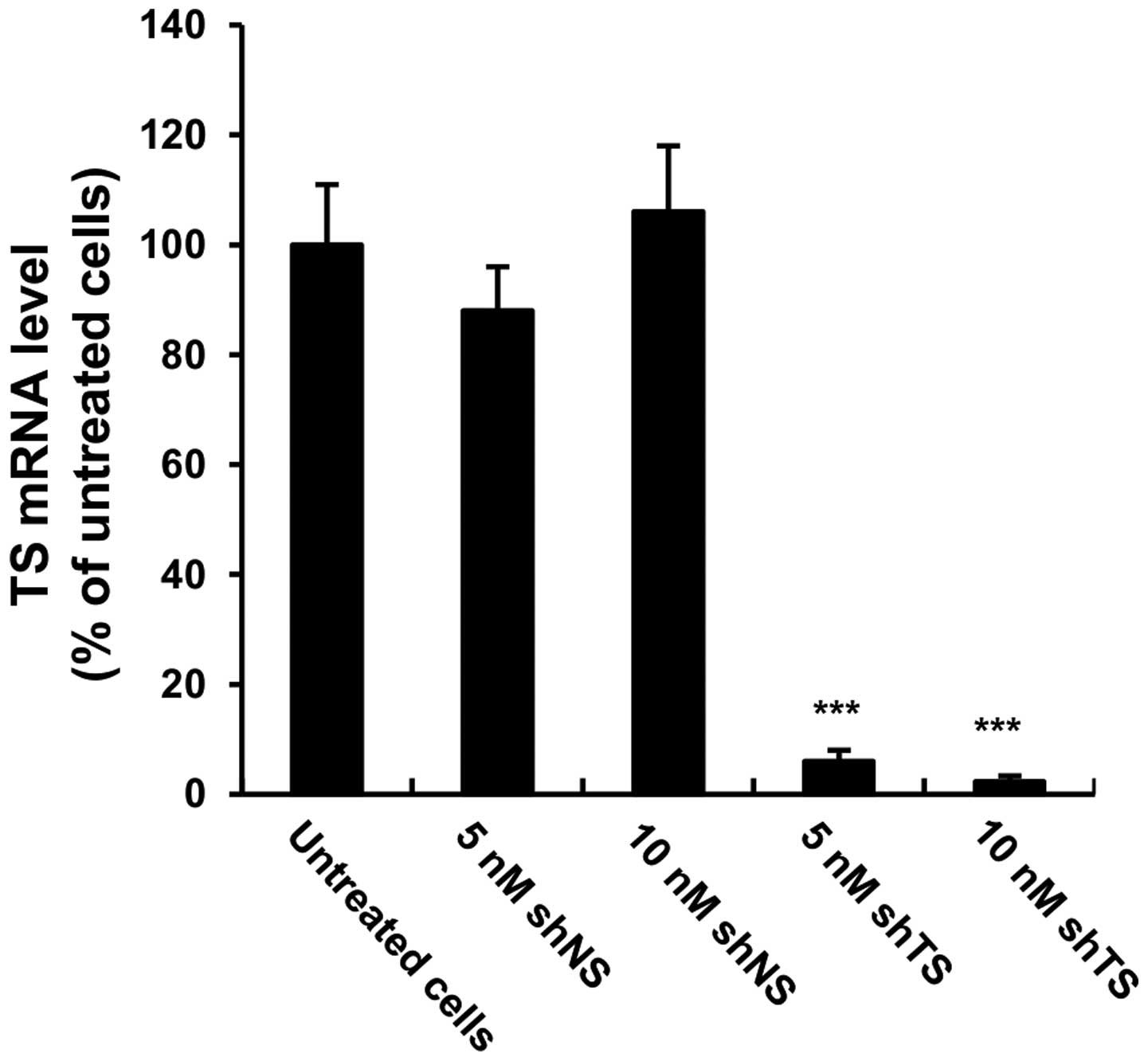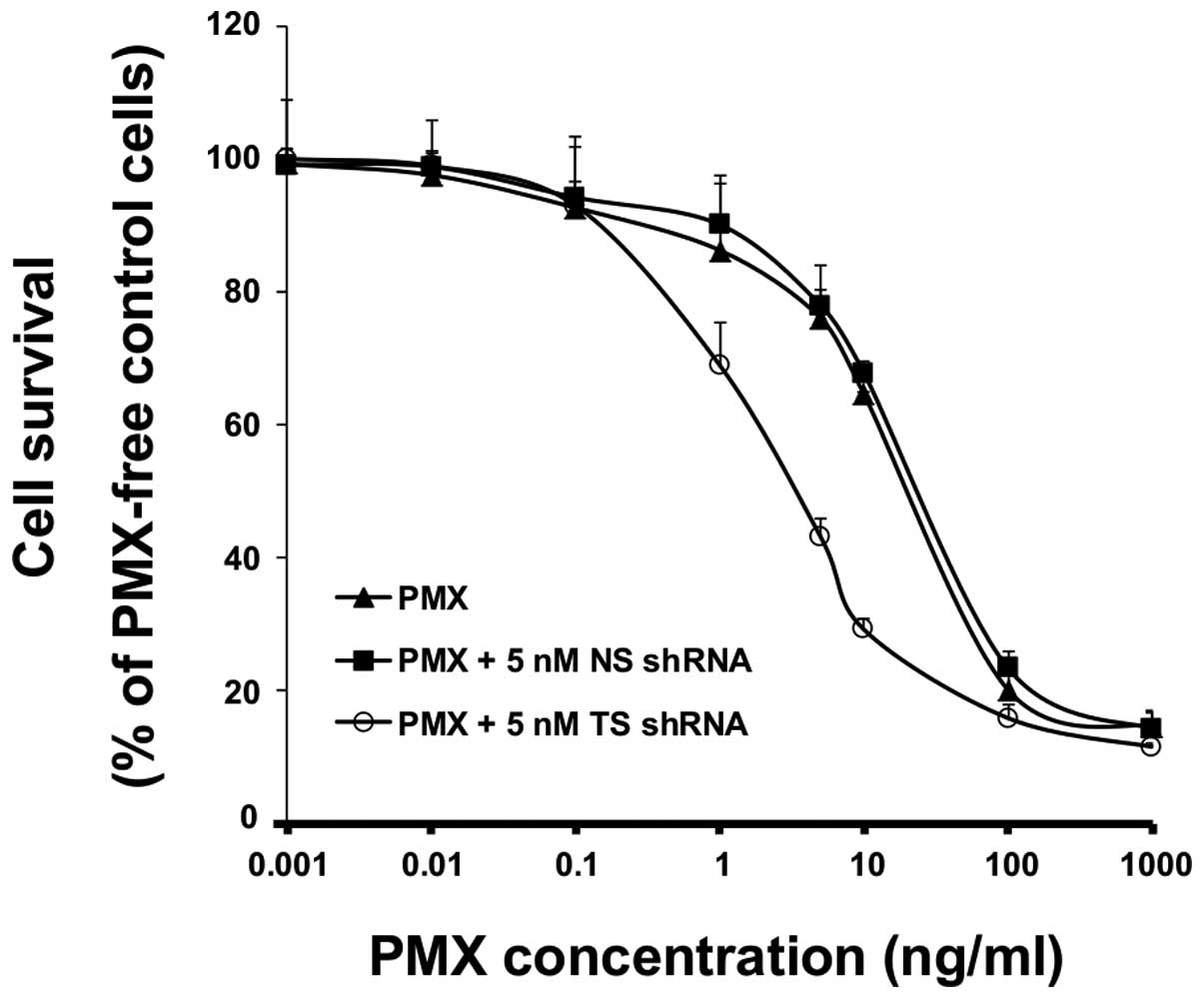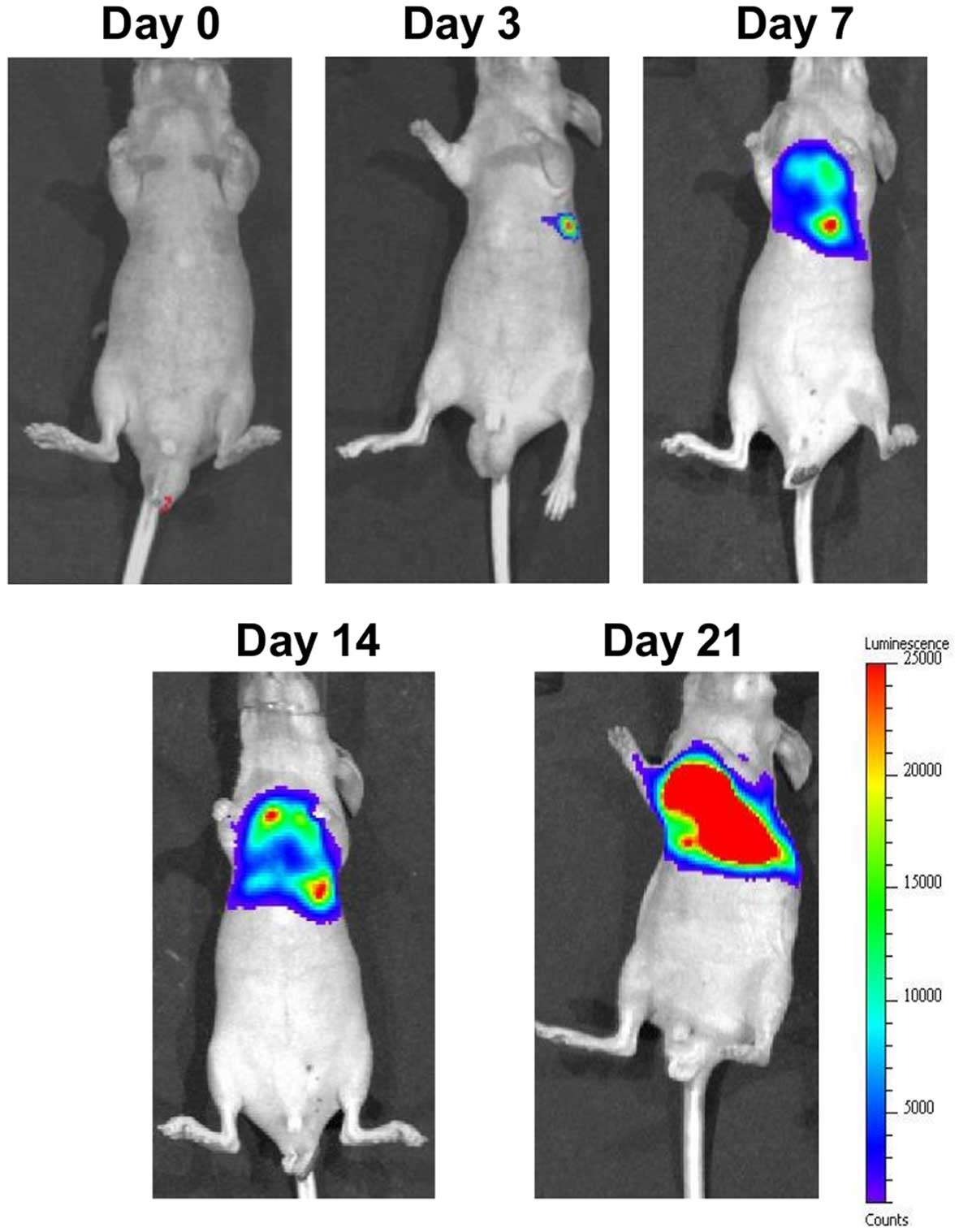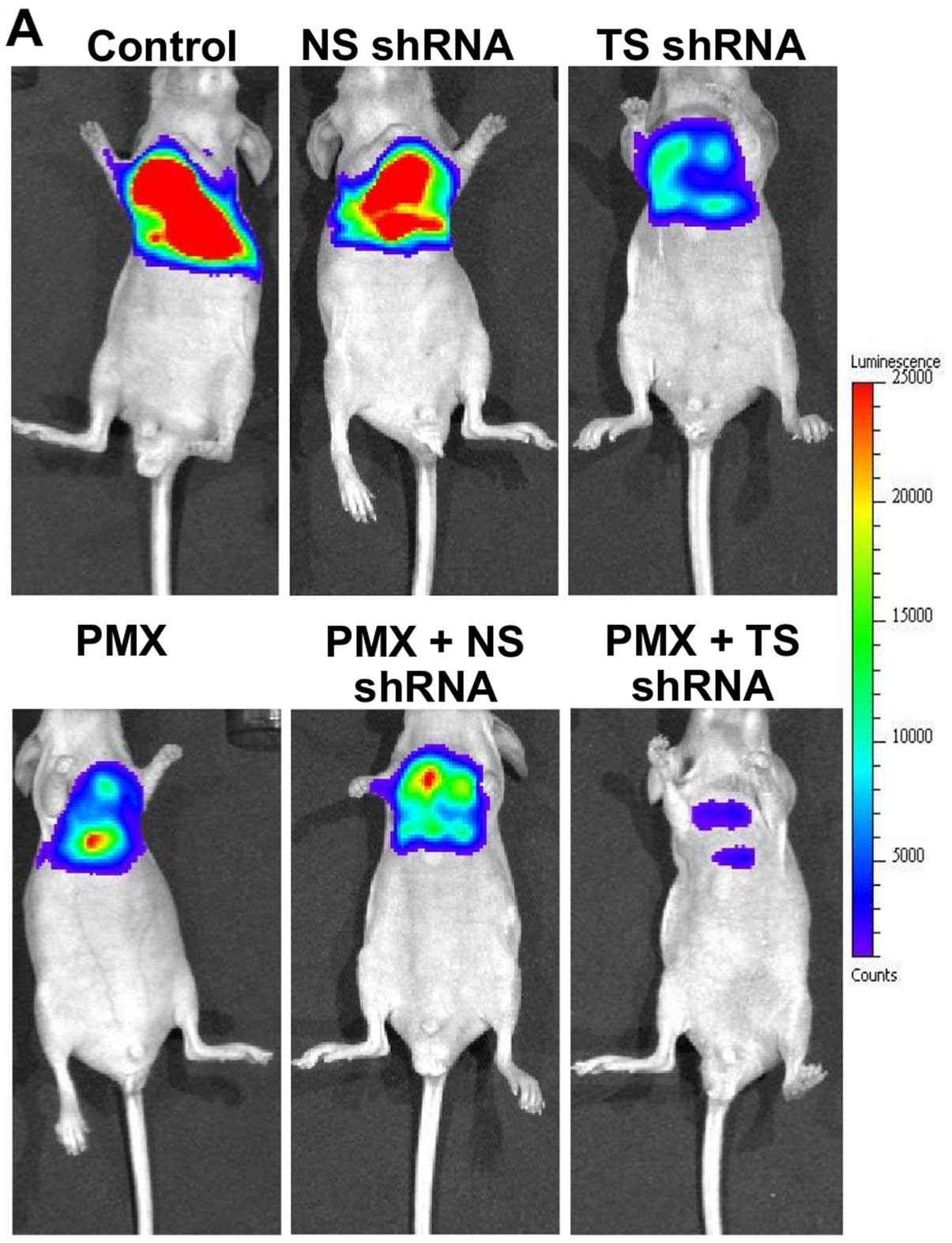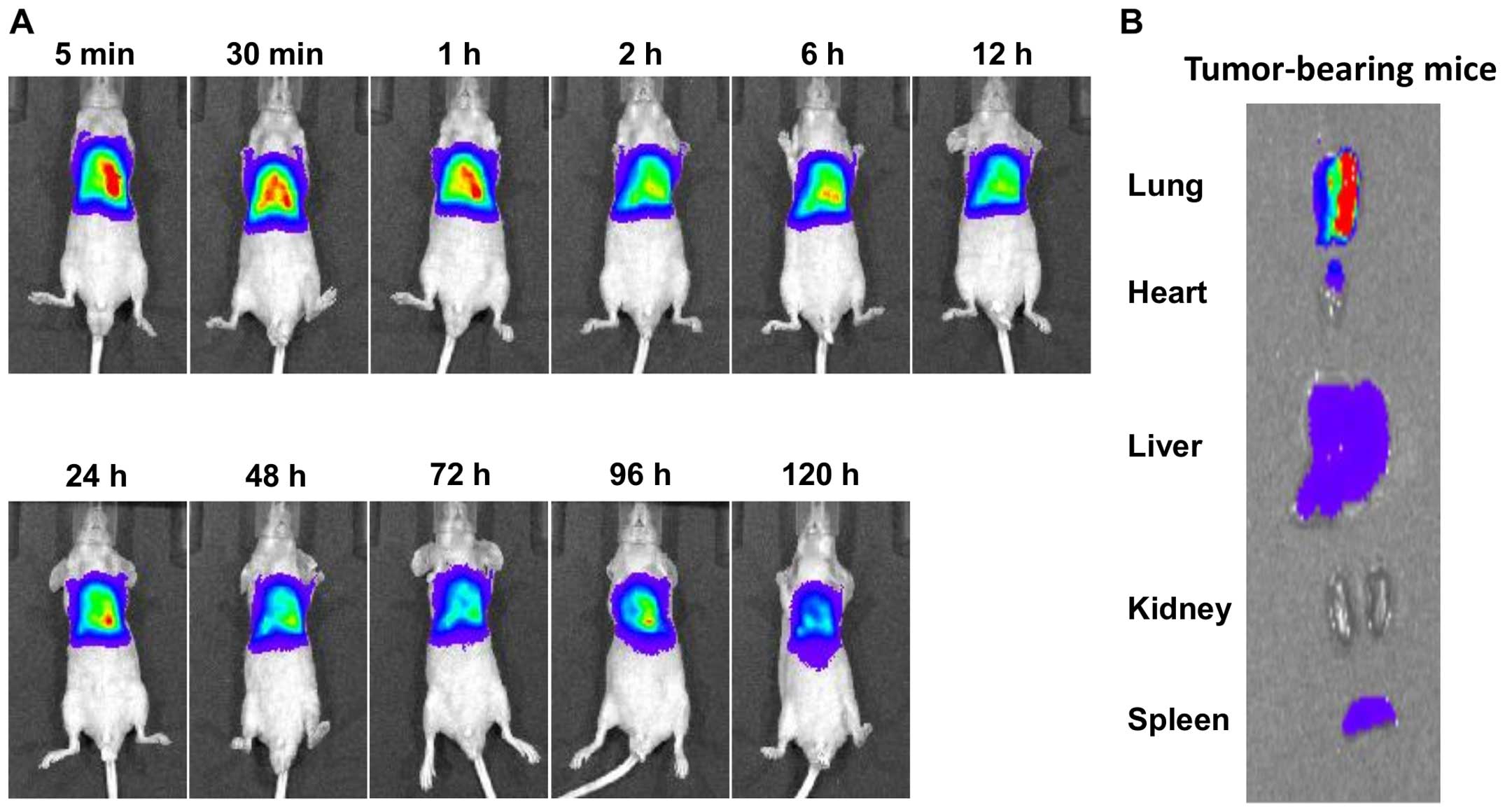|
1
|
Giovannetti E, Zucali PA, Assaraf YG, Leon
LG, Smid K, Alecci C, Giancola F, Destro A, Gianoncelli L, Lorenzi
E, et al: Preclinical emergence of vandetanib as a potent
antitumour agent in mesothelioma: Molecular mechanisms underlying
its synergistic interaction with pemetrexed and carboplatin. Br J
Cancer. 105:1542–1553. 2011. View Article : Google Scholar : PubMed/NCBI
|
|
2
|
Ostroff RM, Mehan MR, Stewart A, Ayers D,
Brody EN, Williams SA, Levin S, Black B, Harbut M, Carbone M, et
al: Early detection of malignant pleural mesothelioma in
asbestos-exposed individuals with a noninvasive proteomics-based
surveillance tool. PLoS One. 7:e460912012. View Article : Google Scholar : PubMed/NCBI
|
|
3
|
Kishimoto T, Ozaki S, Kato K, Nishi H and
Genba K: Malignant pleural mesothelioma in parts of Japan in
relationship to asbestos exposure. Ind Health. 42:435–439. 2004.
View Article : Google Scholar : PubMed/NCBI
|
|
4
|
Takahashi H, Harada M, Maehara S and Kato
H: Localized malignant mesothelioma of the pleura. Ann Thorac
Cardiovasc Surg. 13:262–266. 2007.PubMed/NCBI
|
|
5
|
Hodgson JT, McElvenny DM, Darnton AJ,
Price MJ and Peto J: The expected burden of mesothelioma mortality
in Great Britain from 2002 to 2050. Br J Cancer. 92:587–593.
2005.PubMed/NCBI
|
|
6
|
Joshi TK and Gupta RK: Asbestos-related
morbidity in India. Int J Occup Environ Health. 9:249–253. 2003.
View Article : Google Scholar : PubMed/NCBI
|
|
7
|
Lucchi M, Chella A, Melfi F, Dini P,
Tibaldi C, Fontanini G and Mussi A: Four-modality therapy in
malignant pleural mesothelioma: A phase II study. J Thorac Oncol.
2:237–242. 2007. View Article : Google Scholar : PubMed/NCBI
|
|
8
|
Stahel RA, Weder W, Lievens Y and Felip E;
ESMO Guidelines Working Group. Malignant pleural mesothelioma: ESMO
Clinical Practice Guidelines for diagnosis, treatment and
follow-up. Ann Oncol. 21(Suppl 5): v126–v128. 2010. View Article : Google Scholar : PubMed/NCBI
|
|
9
|
Nasreen N, Khodayari N and Mohammed KA:
Advances in malignant pleural mesothelioma therapy: Targeting EphA2
a novel approach. Am J Cancer Res. 2:222–234. 2012.
|
|
10
|
Steele JP and Klabatsa A: Chemotherapy
options and new advances in malignant pleural mesothelioma. Ann
Oncol. 16:345–351. 2005. View Article : Google Scholar : PubMed/NCBI
|
|
11
|
Ceresoli GL, Gridelli C and Santoro A:
Multidisciplinary treatment of malignant pleural mesothelioma.
Oncologist. 12:850–863. 2007. View Article : Google Scholar : PubMed/NCBI
|
|
12
|
Katirtzoglou N, Gkiozos I, Makrilia N,
Tsaroucha E, Rapti A, Stratakos G, Fountzilas G and Syrigos KN:
Carboplatin plus pemetrexed as first-line treatment of patients
with malignant pleural mesothelioma: A phase II study. Clin Lung
Cancer. 11:30–35. 2010. View Article : Google Scholar : PubMed/NCBI
|
|
13
|
Sorensen JB, Sundstrom S, Perell K and
Thielsen AK: Pemetrexed as second-line treatment in malignant
pleural mesothelioma after platinum-based first-line treatment. J
Thorac Oncol. 2:147–152. 2007. View Article : Google Scholar : PubMed/NCBI
|
|
14
|
Hanauske AR, Chen V, Paoletti P and
Niyikiza C: Pemetrexed disodium: A novel antifolate clinically
active against multiple solid tumors. Oncologist. 6:363–373. 2001.
View Article : Google Scholar : PubMed/NCBI
|
|
15
|
Marangolo M and Vertogen B: Pemetrexed and
malignant pleural mesothelioma. Ann Oncol. 17(Suppl 5): v103–v105.
2006. View Article : Google Scholar : PubMed/NCBI
|
|
16
|
Scagliotti GV, Shin DM, Kindler HL,
Vasconcelles MJ, Keppler U, Manegold C, Burris H, Gatzemeier U,
Blatter J, Symanowski JT, et al: Phase II study of pemetrexed with
and without folic acid and vitamin B12 as front-line therapy in
malignant pleural mesothelioma. J Clin Oncol. 21:1556–1561. 2003.
View Article : Google Scholar : PubMed/NCBI
|
|
17
|
Ozasa H, Oguri T, Uemura T, Miyazaki M,
Maeno K, Sato S and Ueda R: Significance of thymidylate synthase
for resistance to pemetrexed in lung cancer. Cancer Sci.
101:161–166. 2010. View Article : Google Scholar
|
|
18
|
Zhang D, Ochi N, Takigawa N, Tanimoto Y,
Chen Y, Ichihara E, Hotta K, Tabata M, Tanimoto M and Kiura K:
Establishment of pemetrexed-resistant non-small cell lung cancer
cell lines. Cancer Lett. 309:228–235. 2011. View Article : Google Scholar : PubMed/NCBI
|
|
19
|
Milhavet O, Gary DS and Mattson MP: RNA
interference in biology and medicine. Pharmacol Rev. 55:629–648.
2003. View Article : Google Scholar : PubMed/NCBI
|
|
20
|
Shirasaki T, Maruya S, Mizukami H,
Kakehata S, Kurotaki H, Yagihashi S and Shinkawa H: Effects of
small interfering RNA targeting thymidylate synthase on survival of
ACC3 cells from salivary adenoid cystic carcinoma. BMC Cancer.
8:3482008. View Article : Google Scholar : PubMed/NCBI
|
|
21
|
Jeang KT: RNAi in the regulation of
mammalian viral infections. BMC Biol. 10:582012. View Article : Google Scholar : PubMed/NCBI
|
|
22
|
John M, Constien R, Akinc A, Goldberg M,
Moon Y-A, Spranger M, Hadwiger P, Soutschek J, Vornlocher H-P,
Manoharan M, et al: Effective RNAi-mediated gene silencing without
interruption of the endogenous microRNA pathway. Nature.
449:745–747. 2007. View Article : Google Scholar : PubMed/NCBI
|
|
23
|
Nakamura K, Abu Lila AS, Matsunaga M, Doi
Y, Ishida T and Kiwada H: A double-modulation strategy in cancer
treatment with a chemotherapeutic agent and siRNA. Mol Ther.
19:2040–2047. 2011. View Article : Google Scholar : PubMed/NCBI
|
|
24
|
Leung RK and Whittaker PA: RNA
interference: From gene silencing to gene-specific therapeutics.
Pharmacol Ther. 107:222–239. 2005. View Article : Google Scholar : PubMed/NCBI
|
|
25
|
Abu Lila AS, Matsumoto H, Doi Y, Nakamura
H, Ishida T and Kiwada H: Tumor-type-dependent vascular
permeability constitutes a potential impediment to the therapeutic
efficacy of liposomal oxaliplatin. Eur J Pharm Biopharm.
81:524–531. 2012. View Article : Google Scholar : PubMed/NCBI
|
|
26
|
Bartlett GR: Colorimetric assay methods
for free and phosphorylated glyceric acids. J Biol Chem.
234:469–471. 1959.PubMed/NCBI
|
|
27
|
Kviecinski MR, Felipe KB, Schoenfelder T,
de Lemos Wiese LP, Rossi MH, Gonçalez E, Felicio JD, Filho DW and
Pedrosa RC: Study of the antitumor potential of Bidens pilosa
(Asteraceae) used in Brazilian folk medicine. J Ethnopharmacol.
117:69–75. 2008. View Article : Google Scholar : PubMed/NCBI
|
|
28
|
Abu Lila AS, Kizuki S, Doi Y, Suzuki T,
Ishida T and Kiwada H: Oxaliplatin encapsulated in PEG-coated
cationic liposomes induces significant tumor growth suppression via
a dual-targeting approach in a murine solid tumor model. J Control
Release. 137:8–14. 2009. View Article : Google Scholar : PubMed/NCBI
|
|
29
|
Sharma P, Brown S, Walter G, Santra S and
Moudgil B: Nanoparticles for bioimaging. Adv Colloid Interface Sci.
123–126:471–485. 2006. View Article : Google Scholar
|
|
30
|
Takezawa K, Okamoto I, Okamoto W, Takeda
M, Sakai K, Tsukioka S, Kuwata K, Yamaguchi H, Nishio K and
Nakagawa K: Thymidylate synthase as a determinant of pemetrexed
sensitivity in non-small cell lung cancer. Br J Cancer.
104:1594–1601. 2011. View Article : Google Scholar : PubMed/NCBI
|
|
31
|
Shintani Y, Ohta M, Hirabayashi H, Tanaka
H, Iuchi K, Nakagawa K, Maeda H, Kido T, Miyoshi S and Matsuda H:
New prognostic indicator for non-small-cell lung cancer,
quantitation of thymidylate synthase by real-time reverse
transcription polymerase chain reaction. Int J Cancer. 104:790–795.
2003. View Article : Google Scholar : PubMed/NCBI
|
|
32
|
Hashimoto H, Ozeki Y, Sato M, Obara K,
Matsutani N, Nakagishi Y, Ogata T and Maehara T: Significance of
thymidylate synthase gene expression level in patients with
adenocarcinoma of the lung. Cancer. 106:1595–1601. 2006. View Article : Google Scholar : PubMed/NCBI
|
|
33
|
Hannon GJ: RNA interference. Nature.
418:244–251. 2002. View Article : Google Scholar : PubMed/NCBI
|
|
34
|
Huang C, Li M, Chen C and Yao Q: Small
interfering RNA therapy in cancer: Mechanism, potential targets,
and clinical applications. Expert Opin Ther Targets. 12:637–645.
2008. View Article : Google Scholar : PubMed/NCBI
|
|
35
|
Tabach Y, Billi AC, Hayes GD, Newman MA,
Zuk O, Gabel H, Kamath R, Yacoby K, Chapman B, Garcia SM, et al:
Identification of small RNA pathway genes using patterns of
phylogenetic conservation and divergence. Nature. 493:694–698.
2013. View Article : Google Scholar : PubMed/NCBI
|
|
36
|
Chen HY, Wang JM, Wang HY, Zhang Y, Liu W,
Pan L, Wang W, Chen S, Jin W and Wang L: Effect of short hairpin
RNA-induced CXCR4 silence on ovarian cancer cell. Biomed
Pharmacother. 66:549–553. 2012. View Article : Google Scholar : PubMed/NCBI
|
|
37
|
Castanotto D and Rossi JJ: The promises
and pitfalls of RNA-interference-based therapeutics. Nature.
457:426–433. 2009. View Article : Google Scholar : PubMed/NCBI
|
|
38
|
Terasawa K, Shimizu K and Tsujimoto G:
Synthetic pre-miRNA-based shRNA as potent RNAi triggers. J Nucleic
Acids. 131579:20112011.
|
|
39
|
Jackson AL and Linsley PS: Recognizing and
avoiding siRNA off-target effects for target identification and
therapeutic application. Nat Rev Drug Discov. 9:57–67. 2010.
View Article : Google Scholar : PubMed/NCBI
|
|
40
|
Iwahori K, Serada S, Fujimoto M, Nomura S,
Osaki T, Lee CM, Mizuguchi H, Takahashi T, Ripley B, Okumura M, et
al: Overexpression of SOCS3 exhibits preclinical antitumor activity
against malignant pleural mesothelioma. Int J Cancer.
129:1005–1017. 2011. View Article : Google Scholar
|
|
41
|
Sterman DH, Recio A, Carroll RG, Gillespie
CT, Haas A, Vachani A, Kapoor V, Sun J, Hodinka R, Brown JL, et al:
A phase I clinical trial of single-dose intrapleural IFN-beta gene
transfer for malignant pleural mesothelioma and metastatic pleural
effusions: High rate of antitumor immune responses. Clin Cancer
Res. 13:4456–4466. 2007. View Article : Google Scholar : PubMed/NCBI
|
|
42
|
Sterman DH, Recio A, Vachani A, Sun J,
Cheung L, DeLong P, Amin KM, Litzky LA, Wilson JM, Kaiser LR, et
al: Long-term follow-up of patients with malignant pleural
mesothelioma receiving high-dose adenovirus herpes simplex
thymidine kinase/ganciclovir suicide gene therapy. Clin Cancer Res.
11:7444–7453. 2005. View Article : Google Scholar : PubMed/NCBI
|
|
43
|
Storch K and Cordes N: Focal
adhesion-chromatin linkage controls tumor cell resistance to radio-
and chemotherapy. Chemother Res Pract. 2012:3192872012.PubMed/NCBI
|















